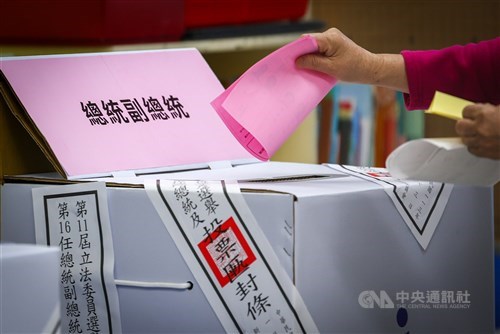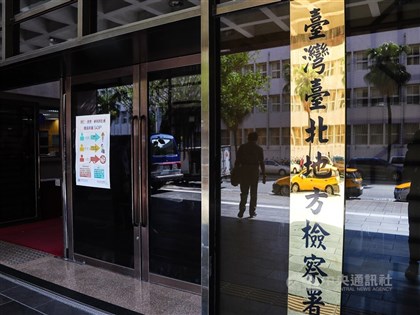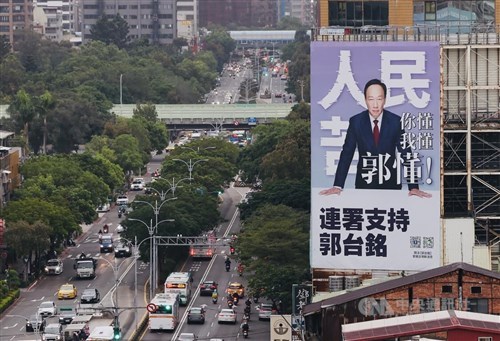ELECTION 2024 / Taiwan's 'boring' election a sign of its maturity as a democracy: Scholar
01/14/2024 11:56 AM
Contrary to the existential framings in the international media, Taiwan's 2024 election campaign was calm and even "boring" compared to those of previous years, showing that it has become a normal democracy, a U.S. scholar said Saturday.
(Full text of the story is now in CNA English news archive. To view the full story, you will need to be a subscribed member of the CNA archive. To subscribe, please read here.)
More in ELECTION 2024
-
![5 suspects, including association head, indicted for election law breach]() 5 suspects, including association head, indicted for election law breachThe head of a new immigrant association and four other people have been indicted for suspected violations of Taiwan's election law as well as the Anti-Infiltration Act, according to the Ciaotou District Prosecutors Office in Kaohsiung.03/07/2024 08:11 PM
5 suspects, including association head, indicted for election law breachThe head of a new immigrant association and four other people have been indicted for suspected violations of Taiwan's election law as well as the Anti-Infiltration Act, according to the Ciaotou District Prosecutors Office in Kaohsiung.03/07/2024 08:11 PM -
![Taipei prosecutors indict 7 in Terry Gou signature-buying case]() Taipei prosecutors indict 7 in Terry Gou signature-buying caseTaipei prosecutors on Tuesday indicted seven people for stealing ID numbers from e-commerce sites to help business tycoon Terry Gou's (郭台銘) presidential petition drive last year.03/05/2024 05:52 PM
Taipei prosecutors indict 7 in Terry Gou signature-buying caseTaipei prosecutors on Tuesday indicted seven people for stealing ID numbers from e-commerce sites to help business tycoon Terry Gou's (郭台銘) presidential petition drive last year.03/05/2024 05:52 PM -
![Pingtung Council speaker indicted in Terry Guo signature buying case]() Pingtung Council speaker indicted in Terry Guo signature buying casePingtung County Council Speaker Chou Tien-lun (周典論) has been indicted on suspicion of buying signatures for business tycoon Terry Gou's (郭台銘) presidential run, the Pingtung District Prosecutors Office said Wednesday.02/21/2024 09:14 PM
Pingtung Council speaker indicted in Terry Guo signature buying casePingtung County Council Speaker Chou Tien-lun (周典論) has been indicted on suspicion of buying signatures for business tycoon Terry Gou's (郭台銘) presidential run, the Pingtung District Prosecutors Office said Wednesday.02/21/2024 09:14 PM
Latest
-
Society
Liyu Lake pedal boat operator released on bail after 9-year-old drowns
02/20/2026 08:12 PM -
Society
Frontal weather systems forecast to impact Taiwan Tuesday evening
02/20/2026 07:34 PM -
Society
Vietnamese workers abroad mark Tết through video calls
02/20/2026 07:27 PM -
Culture
11 hospitalized after SUV loses control, crashes into oncoming vehicle
02/20/2026 06:27 PM -
Society
Soft hail falls on Hehuan Mountain
02/20/2026 03:51 PM


